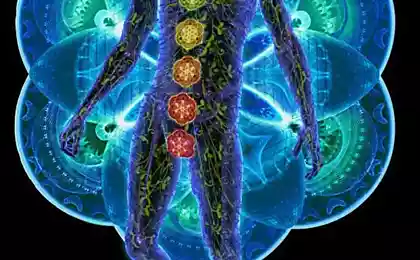499
Why do people laugh?

Ask the question, "Why do you laugh?" 100 people and at least 99 hear the answer - "Because it's funny!" But research shows that in fact the cause of laughter is usually not that funny. Judge Robert Provine, who studies laughter, hours recorded conversations of people in shopping malls, classrooms, offices and parties to understand - what is it that makes people laugh?
Here's what he found out: the vast majority of people are not laughing because they heard a joke or see a funny situation. Laughter sounded at the end of unhumorous phrases in response to the unfunny comments ("Look, it's Andre!" - "Hee hee"), and sometimes for no reason at all. Even attempts to shine respondents humorous laughter causes less than a banal phrase "Are you sure?»
Areas of control laughter in our brain are the same "old" as well as those responsible for breathing and reflexes. This means that they are located too far from the areas later evolved, those that are responsible for language and memory. There is another fundamental feature of laughter can laugh all people without exception, even the deaf from birth. Despite the fact that they had never heard the sound of laughter, they make the same sounds when it's funny. All of this suggests that laughter - our physiological, not psychological feature. Perhaps this explains why we sometimes can not force the will to stop the attack of uncontrollable laughter.
Of course, we are actively using laughter for social interaction. Laughter can be like a group of people to rally and fell out laughing when one over the other. Laughter can be expressed in a wide range of emotions, from delight to scorn. Laughter can attract the attention of the opposite sex. And so on.
So, here are two responses that we have today: Laugh - it's our physiological feature and Laughter - a tool for socialization. But in order to understand the nature of laughter, you want to find an answer to the other question: Why is laughter evolved? As it developed? As he develops during a person's life? And finally, how it works?
via factroom.ru
8 species of animals extinct for our lives
12 facts about what happens to you in the open space within 90 seconds
























